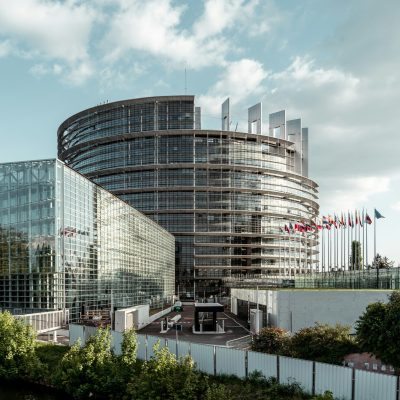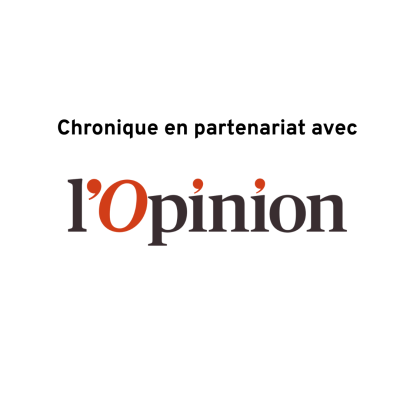Chronique d’une rupture : le départ du Fidesz du groupe PPE au Parlement européen

La question du départ du parti hongrois, Fidesz[1], du Parti populaire européen (PPE) a été posée depuis au moins une décennie. Dès le retour de Viktor Orbán au pouvoir en 2010, certaines décisions de son gouvernement ont commencé à provoquer des tensions avec le reste de l’Union européenne, y compris au sein du PPE et de son groupe au Parlement européen. Certes, en juillet 2013, les eurodéputés du PPE ont encore assez largement soutenu Viktor Orbán lors du vote du rapport Tavares, rédigé par l’eurodéputé portugais Rui Tavares (Verts/ALE), très critique à l’égard du gouvernement hongrois. Si en mai 2015, le « Salut, dictateur ! » par lequel Jean-Claude Juncker, alors président de la Commission européenne, accueillait Viktor Orbán passait pour une boutade, les relations entre le Fidesz et ses partenaires européens n’ont pas tardé à se détériorer considérablement par la suite. Du côté hongrois, rappelons l’exploitation politique de la crise migratoire, avec notamment la consultation nationale « Stop Bruxelles » en avril 2017, ou encore le conflit avec l’Université d’Europe centrale et la lutte contre « l’empire Soros » ou le « plan Soros », pour reprendre des expressions habituelles du premier ministre hongrois[2]. Face à ces développements, le rapport Sargentini, du nom de l’eurodéputée néerlandaise Judith Sargentini (Verts/ALE), est adopté en septembre 2018 avec un nombre non-négligeable de voix PPE et deux mois plus tard, lors du congrès du PPE à Helsinki, Donald Tusk, dans son rôle ici de président du PPE, prononce, sans le nommer, un véritable réquisitoire contre Viktor Orbán. La provocation de trop arrive avec la campagne du gouvernement hongrois s’attaquant ouvertement à Jean-Claude Juncker en février 2019. Face aux treize partis membres du PPE (sur un total de 83) qui demandent l’exclusion pure et simple du Fidesz, la direction du parti européen propose un compromis en mars 2019. Par 190 voix contre 3, le Fidesz est « suspendu » : il est privé du droit de vote, ne peut pas assister aux réunions du parti et ne peut pas proposer de candidats aux postes de responsabilité relevant du parti. Cette suspension – qui toutefois n’affecte pas le groupe PPE au Parlement européen – est reconduite en février 2020.
Une rupture avec la stratégie européenne singulière du Fidesz
Cette détérioration des relations entre le PPE et son membre hongrois correspond à une rupture dans la stratégie européenne de Viktor Orbán, à la suite de la crise migratoire. Jusqu’alors, Fidesz pouvait faire tolérer son agenda domestique controversé par une attitude accommodante, voire constructive sur la scène européenne. Il se distinguait ainsi de certains autres partis de la droite conservatrice centre-européenne, notamment le parti Droit et Justice (PiS) polonais et le Parti démocratique civique (ODS) tchèque. Ce dernier n’a jamais adhéré au PPE. Ses eurodéputés, après avoir siégé dans la composante « Démocrates européens » (DE) du groupe PPE-DE au Parlement européen de 2004 à 2009, ont fait sécession, avec les conservateurs britanniques, pour créer le groupe des Conservateurs et réformistes européens (ECR). Quant au PiS, il a siégé d’abord au groupe de l’Union pour l’Europe des nations (UEN), avant de rejoindre ECR.
La stratégie européenne du Fidesz a été très différente : après avoir été membre de l’Internationale libérale dans les années 1990, le Fidesz est devenu un membre loyal et actif du PPE à partir de 2000. Viktor Orbán a été l’un des vice-présidents du PPE de 2002 à 2012. Il a toujours tenu à souligner cet ancrage chrétien-démocrate et à revendiquer – jusqu’à aujourd’hui – une filiation avec Helmut Kohl. Le passage consacré au Fidesz et à Viktor Orbán dans les mémoires de Wilfried Martens[3] est éloquent à cet égard : rien ne semble, à la veille du retour du Fidesz au pouvoir en Hongrie, annoncer la tournure acrimonieuse que les relations entre ce parti et le PPE allaient prendre.
Fidesz et le PPE : du compromis à la compromission
Au fil des années, un compromis s’est noué entre le Fidesz et le reste du PPE : un comportement loyal à l’égard de la famille chrétienne-démocrate à Bruxelles en échange d’une certaine mansuétude de la part des institutions européennes face aux agissements de plus en plus controversés à Budapest. Or, Viktor Orbán lui-même a commencé à torpiller ce compromis, en s’en prenant de plus en plus souvent à l’Union européenne et en se posant en porteur d’une vision de l’Europe fort éloignée des fondamentaux traditionnels du PPE. L’apparition d’un allié de poids sur la scène européenne avec le retour au pouvoir du PiS en Pologne en 2015 n’a certainement pas été étrangère à cette radicalisation, Viktor Orbán se faisant ouvertement chantre d’une « contre-révolution culturelle[4] », une attitude difficilement conciliable avec la ligne du PPE. Le discours précité de Donald Tusk n’aurait pas pu être plus clair à ce sujet : « si vous êtes opposé à l’État de droit et à l’indépendance de la justice (…) ; si vous n’aimez pas la presse libre et les ONG, si vous tolérez la xénophobie, le nationalisme et l’antisémitisme (…) ; si, pour vous, l’État et la nation sont opposés ou supérieurs à la liberté ou à la dignité des individus (…); si vous voulez remplacer le modèle occidental de démocratie libérale par un modèle oriental de « démocratie autoritaire », vous n’êtes pas un démocrate-chrétien ».
Pourtant, malgré le sentiment croissant d’une partie du PPE que le compromis évoqué ci-dessus relevait de plus en plus d’une compromission, le statu quo se maintenait. Pour Fidesz, la caution du PPE restait malgré tout attractive et pour la garder, il n’a eu de cesse d’essayer de convaincre le reste du PPE d’être victime d’une propagande malveillante de la gauche et de ne pas être plus éloigné des fondamentaux du PPE que ne le sont la CSU, l’ÖVP ou Forza Italia. Ainsi, au lendemain de la victoire du Fidesz aux élections législatives hongroises en avril 2018, József Szájer, l’homme clé de la politique européenne du Fidesz, a adressé une lettre à ses collègues eurodéputés du groupe PPE où il développe longuement ces thèses, en commençant par remercier le président du groupe, Manfred Weber (CSU), d’être venu à Budapest pendant la campagne pour soutenir Fidesz.
Quant au PPE, plusieurs raisons l’encourageaient à fermer les yeux. Tout d’abord, l’arithmétique parlementaire, avec pour enjeu les eurodéputés du Fidesz, onze de 2014 à 2019, douze depuis 2019[5]. Ensuite, la volonté d’éviter des tensions internes, l’attitude à l’égard du Fidesz variant au sein du PPE et même au sein des partis nationaux, comme le montre l’exemple du vote des eurodéputés LR sur le rapport Sargentini. Ces divisions internes ont été mises en évidence par le travail des « trois sages » (Herman Van Rompuy, Wolfgang Schlüssel, Hans-Gert Pöttering), désignés en mars 2019 pour éclairer la suite à donner à la suspension du Fidesz. Or, ils n’ont pas su suggérer une ligne claire, l’ex-chancelier autrichien prônant l’indulgence, l’ex-président belge du Conseil européen représentant la ligne dure et l’ex-président allemand du Parlement européen jouant les médiateurs. Enfin, certains membres du PPE restaient sensibles à l’argument sur les effets modérateurs du maintien du Fidesz dans le giron chrétien-démocrate.
2017 – 2020 : une aliénation progressive sans rupture assumée
Ce dernier argument est devenu de moins en moins convaincant devant le manque de volonté de conciliation affichée par Viktor Orbán. L’affaire de l’Université d’Europe centrale a joué un rôle important, dès 2017-18. Si l’attitude du gouvernement hongrois sur l’immigration ou diverses questions de société a pu trouver une forme de sympathie plus ou moins assumée au sein du PPE et provoquer un réflexe défensif face à la gauche, cela n’a pas été le cas pour les atteintes à la liberté académique et le complotisme anti-Soros. S’y ajoutait le positionnement volontiers pro-russe de Viktor Orbán ou encore la préoccupation croissante au sujet de la liberté de la presse en Hongrie[6].
Toutefois, ce sont les attaques contre sa propre famille politique qui ont porté le coup fatal à la thèse de l’influence modératrice du PPE sur son membre hongrois : la campagne d’affichage ciblant Jean-Claude Juncker déjà mentionnée ou encore la bonne entente entre Viktor Orbán, Matteo Salvini et Heinz-Christian Strache à l’approche des élections européennes de 2019. Le divorce semblait consommé, lorsque Manfred Weber – pourtant issu de la CSU, réputée compréhensive à l’égard de Viktor Orbán – a déclaré préférer ne pas être élu à la tête de la Commission européenne, plutôt que de l’être grâce aux voix du Fidesz, Viktor Orbán répliquant qu’il ne soutiendrait plus le Spitzenkandidat du PPE.
Et pourtant, au lendemain des élections européennes de mai 2019, les eurodéputés du Fidesz, une fois de plus, préfèrent siéger au sein du groupe PPE, lequel les accueille malgré la suspension du parti en vigueur depuis mars 2019. Toutefois, un peu moins de deux ans plus tard, la rupture a fini par être consommée aussi au Parlement européen. Au-delà du contexte de la crise de la COVID-19 qui a encore exacerbé les tensions préexistantes[7], plusieurs facteurs expliquent ce dénouement.
2020 – 2021 : la rupture
Après avoir été « lâché » par une grande partie du PPE lors du vote sur le rapport Sargentini, Viktor Orbán l’a été encore davantage lors de l’adoption, en janvier 2020, de la résolution qui constatait la détérioration de la situation de l’Etat de droit en Hongrie et en Pologne[8]. L’appartenance au PPE ne l’a pas non plus aidé dans le combat contre la conditionnalité des aides du plan de relance au respect de l’Etat de droit. En retour, les vetos hongrois et polonais dans cette affaire ont encore renforcé le sentiment, au sein du PPE, que la Hongrie poursuit une dérive incompatible avec ses valeurs et ses priorités politiques.
C’est dans ce contexte qu’un conflit ouvert a éclaté, en décembre 2020, au sein du groupe PPE, suite aux propos de l’eurodéputé hongrois Tamás Deutsch assimilant les arguments de Manfred Weber, président du groupe PPE, exhortant la Hongrie à accepter la conditionnalité en question, à ceux de la Gestapo et de la police politique en Hongrie communiste. Comme pour les affiches anti-Juncker, c’est donc l’attaque contre l’un des siens qui a fait accélérer les choses. Certes, le groupe PPE louvoie encore, en évitant d’exclure Tamás Deutsch – qui ne sera que privé du droit de s’exprimer au nom du groupe. Mais il adopte tout de même un texte qui critique durement le Fidesz, laisse ouverte la question de sa future exclusion et invite « les députés européens du Fidesz à réfléchir si leurs convictions politiques fondamentales sont encore compatibles avec les valeurs et le contenu profond du groupe PPE ». Cette décision a été adoptée à une majorité écrasante : 133 voix pour, 6 contre, 3 abstentions. Le contexte de la crise sanitaire sert d’excuse commode pour ce louvoiement, puisque le groupe « en appelle au parti PPE pour adopter une décision finale concernant le statut de membre du Fidesz dès que les conditions sanitaires le permettent ».
Moins de trois mois plus tard, début mars 2021, la rupture est consommée : suite à l’épisode Deutsch, le groupe PPE décide de faire évoluer ses règles internes. Le projet des nouveaux statuts du groupe précisent la définition de ses valeurs, en intégrant une référence directe à l’article 2 du Traité sur l’UE et à la Charte des droits fondamentaux de l’UE. Ils précisent aussi la procédure d’exclusion d’un membre du groupe et surtout ils mettent en place une nouvelle option intermédiaire : la suspension des droits d’un ou plusieurs membres du groupe. Cette modification ouvre donc la voie vers une solution équivalente de ce que le parti PPE a mis en œuvre dès mars 2019 : entre ne rien faire et opter pour une exclusion définitive, suspendre les droits d’un membre du groupe, à l’instar de ce qui a déjà été fait, au niveau du groupe, pour Tamás Deutsch, sur une base ad hoc.
Viktor Orbán cherche à empêcher l’adoption de ce texte. Il adresse, le 28 février 2021, une lettre à Manfred Weber. Et il brandit explicitement la menace du retrait des députés du Fidesz du groupe, si les nouveaux statuts sont adoptés. Ceci ne suffit pas : 148 membres du groupe ont approuvé la réforme des statuts, en sachant parfaitement ce que ce vote impliquait à l’égard du Fidesz – soit 79% du groupe (les députés Fidesz inclus) et 82% des votes exprimés, bien au-delà des deux tiers requis. Le jour même, Viktor Orbán a informé Manfred Weber que les députés du Fidesz quittaient le groupe PPE[9].
A tous ces facteurs aux racines anciennes, un incident inattendu est venu s’ajouter, contribuant à la dynamique négative dans les relations entre le Fidesz et le reste du groupe PPE : la chute politique de József Szájer, fin novembre 2020, après qu’il ait été interpellé par la police belge lors d’une partie fine à Bruxelles en plein confinement. Au-delà du préjudice qu’elle a porté à la crédibilité du discours conservateur du Fidesz, cette affaire a fait perdre à Viktor Orbán son allié clé à Bruxelles. Député européen depuis 2004, József Szájer était un membre influent du groupe PPE. Respecté au sein du groupe, il a été le visage acceptable de l’ « orbánisme », d’autant plus compatible avec le PPE qu’il tendait à illustrer le versant conservateur « classique » du Fidesz, mais aussi la capacité à trouver des compromis au sein du groupe PPE, plutôt que la dérive « illibérale », autoritaire et conflictuelle de Viktor Orbán, même s’il n’a pas ménagé sa peine pour la défendre. Il n’est pas illégitime de se demander si l’affaire Deutsch aurait pris la même tournure, si József Szájer était en mesure de jouer, une fois de plus, les médiateurs.
Le groupe PPE n’a donc ni exclu, ni perdu malgré lui les députés du Fidesz ; il les a poussés vers la sortie. Une méthode sans panache, mais qui était certainement la plus adaptée pour préserver l’unité du groupe. Le PPE s’offre ainsi un narratif qui laisse moins d’espace pour un discours victimaire de la part du Fidesz : ce dernier n’a pas été exclu, c’est lui qui a préféré partir plutôt que de se plier aux règles adoptées par une très forte majorité.
Les effets à moyen et long terme
Sans éclat, le groupe PPE renforce sa cohésion et clarifie sa ligne politique, sa lisibilité et son intégrité idéologiques. Toutefois, il convient de rappeler que si le cas Fidesz/PPE en a été sans doute l’exemple le plus criant, d’autres groupes sont confrontés au phénomène de « membres importuns » : le groupe de l’Alliance progressiste des socialistes et démocrates (S&D) avec le parti SMER de Robert Fico en Slovaquie ou le groupe Renew Europe avec le parti ANO d’Andrej Babiš en République tchèque, entre autres.
Reste la question de l’avenir des eurodéputés du Fidesz. Un splendide isolement parmi les non-inscrits ? La chute en termes d’influence serait rude. Une adhésion au groupe ECR ? Cette solution apparaît la plus simple et cohérente avec l’excellente entente entre le Fidesz et le PiS. Mais ECR reste un groupe relativement faible, même si l’arrivée du Fidesz lui permettrait de dépasser d’un siège les Verts/ALE. Accessoirement, cela éloignerait encore davantage ce groupe – déjà dominé par le PiS et les Fratelli d’Italia – de ce qu’il a été autrefois, autour du Parti conservateur britannique d’avant l’ère Johnson. Ce qui pourrait pousser vers la sortie certains autres membres actuels.
Ou alors créer un vaste groupe « anti-immigration », fusionnant l’essentiel des troupes des groupe ECR et ID, en espérant de disputer au groupe S&D la deuxième place derrière le PPE, avec Viktor Orbán en grand unificateur des droites dures et extrêmes, autour d’un programme souverainiste et anti-immigration ? C’est sans doute son projet, énoncé déjà pendant la campagne des élections européennes de 2019. « Je suis convaincu que l’Europe a besoin d’une alliance de partis anti-immigration », a-t-il déclaré, le 2 mai 2019 à Budapest, en recevant Matteo Salvini. Toutefois, ce projet se heurte, pour le moment, à un certain nombre de positions et intérêts politiques divergents. La Ligue de Salvini soutient d’ailleurs la coalition pro-européenne actuellement au pouvoir en Italie, et n’exclut pas totalement de rejoindre le PPE.
Quant à la politique hongroise, si l’effet à court terme de la rupture avec le PPE semble négligeable, il peut affaiblir le Fidesz à plus long terme. Lors des élections législatives de 2022 la course s’annonce potentiellement serrée. Seul en Hongrie face à une opposition qui semble davantage en mesure de s’unir, isolé et brouillé avec sa famille politique traditionnelle sur la scène européenne, le Fidesz de Viktor Orbán paiera-t-il cher cette perte de la caution que lui offrait le PPE, dans un pays où l’opinion publique reste majoritairement favorable à l’Union européenne[10] ?
Notes
[1] L’Alliance des jeunes démocrates (en hongrois : Fiatal Demokraták Szövetsége) a été créée le 30 mars 1988 pour contrebalancer l’influence de la Fédération hongroise de la jeunesse communiste (KISZ) notamment dans les universités. Le Fidesz s’est transformé en parti politique dès le début des années 1990. En 1993 la limite d’âge fixée à 35 ans est abolie et le Fidesz devient un parti politique classique, sous l’appellation officielle « Fidesz – Parti civique hongrois » (1995-2003), puis « Fidesz – Alliance civique hongroise » (depuis 2003).
[2] Viktor Orbán accuse George Soros de chercher sciemment à subvertir l’identité et la civilisation européenne, en orchestrant notamment une immigration massive d’origine extra-européenne, grâce au financement d’un réseau d’ONG, d’organisations internationales, de médias et de partis de gauche. Pour un exemple récent de cette rhétorique anti-Soros : https://parizs.mfa.gov.hu/fra/news/reponse-de-viktor-orban-a-la-nouvelle-intervention-de-george-soros. Pour une mise en perspective de l’utilisation des thèmes « anti-Soros » par le Fidesz : Krekó, Péter ; Enyedi, Zsolt (2018) : « Orbán’s Laboratory of illiberalism » in Journal of Democracy, juillet 2018, Vol. 29, N° 3, surtout pages 45-48.
[3] Martens , Wilfried (2008) : Europe: I Struggle, I Overcome, Springer, 2008
[4] Cf. Krekó, et Enyedi, op. cit.
[5] Les députés hongrois représentaient ainsi la 7ème délégation nationale du groupe PPE en 2014, 4ème en 2019.
[6] Selon le classement de Reporters sans frontières, la Hongrie est passée de la 56ème place mondiale en 2013 à la 89ème en 2020. Le rapport 2020 du Centre pour le pluralisme et la liberté des médias de l’Institut universitaire européen va dans le même sens, en considérant que « les risques pour le pluralisme des médias en Hongrie sont toujours considérablement élevés et en progression en comparaison avec les éditions précédentes ».
[7] Avec les polémiques entourant la version hongroise de l’état d’urgence sanitaire ou encore la politique vaccinale de Budapest.
[8] Parmi les députés PPE présents, 28% ont voté contre le rapport Sargentini en 2018, 23% contre la résolution du 16 janvier 2020 qui « constate avec inquiétude que les rapports et les déclarations de la Commission et des instances internationales (…) indiquent que la situation en Pologne et en Hongrie s’est détériorée depuis le déclenchement de l’article 7, paragraphe 1, du traité UE ». Pourtant, un peu plus d’un an avant le rapport Sargentini, 86% des députés PPE ont voté contre une autre résolution critique à l’égard de la Hongrie qui n’a été, par conséquent, adoptée qu’avec une courte majorité (source : votewatch.eu).
[9] Le PPE n’a toutefois pas perdu la totalité de ses membres hongrois, puisque parmi les 13 eurodéputés hongrois élus sur la liste du Fidesz en 2019, un appartenait au petit parti KDNP (le Parti populaire démocrate-chrétien).
[10] A titre d’exemple : selon l’Eurobaromètre spécial 500 (octobre-novembre 2020), 69% de Hongrois considèrent qu’appartenir à l’UE est une « bonne chose » contre seulement 6% qui pensent le contraire (la moyenne de l’UE étant respectivement de 66 et 10%).




